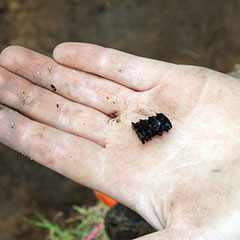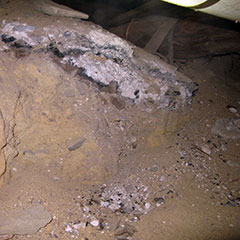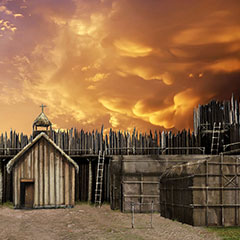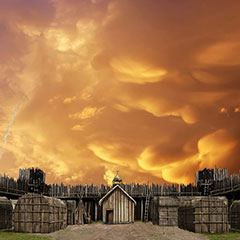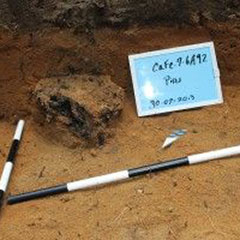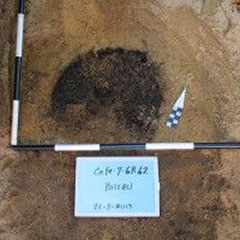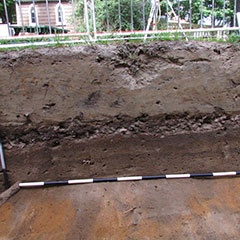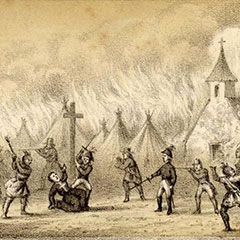The River Burns
According to certain written records from the period, one of the major episodes in the war that led to the defeat of New France took place on the banks of the Saint-François River on a night in October 1759. As indicated by the war journals of British Major Robert Rogers, Abenaki warriors had captured a British captain and lieutenant, along with Amerindians of the Wolf tribe not far from the village in late August, two months earlier. The two officers were disguised as Aboriginals. The Abenakis suspected that they were passing information between British generals Amherst and Wolfe, and they handed them over to the governor of Trois-Rivières. French General Montcalm immediately wrote to Amherst and proposed an exchange of prisoners. Amherst was extremely annoyed by the imprisonment of the officers, for it came on the heels of numerous raids by the Abenakis in New England. He therefore ordered Major Rogers to take a detachment of 200 men and attack the Abenaki settlement on the Saint-François River.
Rogers and his men reached the Saint-François River and the fortified Abenaki village on October 3. As they approached, they realized that a celebration was under way. Only a few warriors were keeping watch over the fort. Rogers attacked in the middle of the night. The Abenakis were taken by surprise and did not have the time to pick up their weapons and defend themselves. The British massacred the village’s inhabitants and pillaged the place of worship and the granaries. They then burned everything to the ground: the village, the Jesuits’ house and the mission church. According to Rogers’ journal, at least 200 Abenakis lost their lives that night. The French authorities, for their part, reported only about 30 deaths . . .

